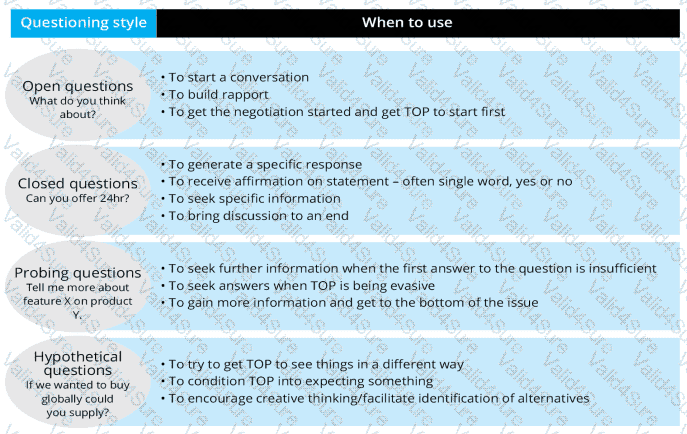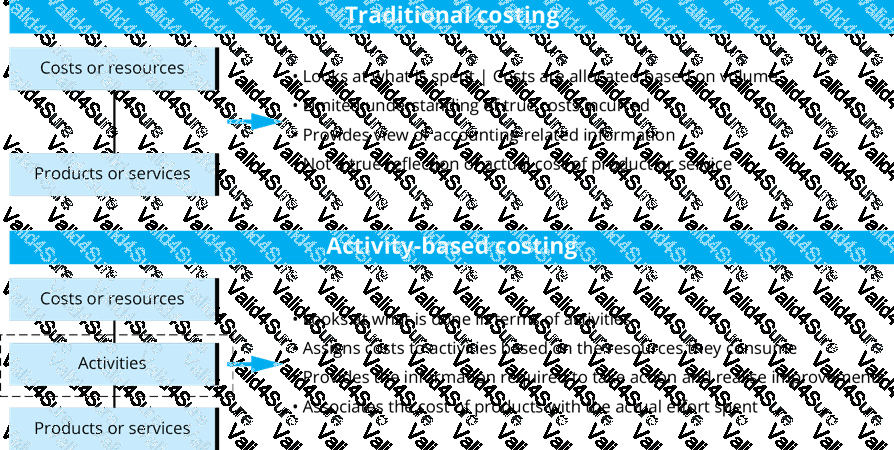L4M5 Exam Dumps - Commercial Negotiation
Searching for workable clues to ace the CIPS L4M5 Exam? You’re on the right place! ExamCert has realistic, trusted and authentic exam prep tools to help you achieve your desired credential. ExamCert’s L4M5 PDF Study Guide, Testing Engine and Exam Dumps follow a reliable exam preparation strategy, providing you the most relevant and updated study material that is crafted in an easy to learn format of questions and answers. ExamCert’s study tools aim at simplifying all complex and confusing concepts of the exam and introduce you to the real exam scenario and practice it with the help of its testing engine and real exam dumps
Which one of these key approaches could be pursued for a successful negotiation of a commercial agreement?
Which type of question should be used to receive affirmation on statement?
When planning an international negotiation, which divergent positions may create potential conflict? Select TWO.
In airline industry, suppliers prefer to adopt dynamic pricing in order to constantly monitor and change their fares in response to market conditions. Dynamics pricing is based on which costing method?
Which of the following are typical characteristics of activity-based costing (ABC) method? Select TWO that apply.
From the principled point of view about negotiation environment, which of the following is a true statement?
Lina Rawlins, a senior buyer for a medical equipment company, is in charge of the company's largest supplier account. Recently, the supplier's performance has declined, leading to more rejected items. Lina has asked the supplier for an urgent meeting. In the meeting, she asks: “Can you tell me exactly what you are doing to ensure quality?â€
What type of question is Lina asking?
 Text Description automatically generated
Text Description automatically generated Graphical user interface, text, chat or text message, website Description automatically generated
Graphical user interface, text, chat or text message, website Description automatically generated